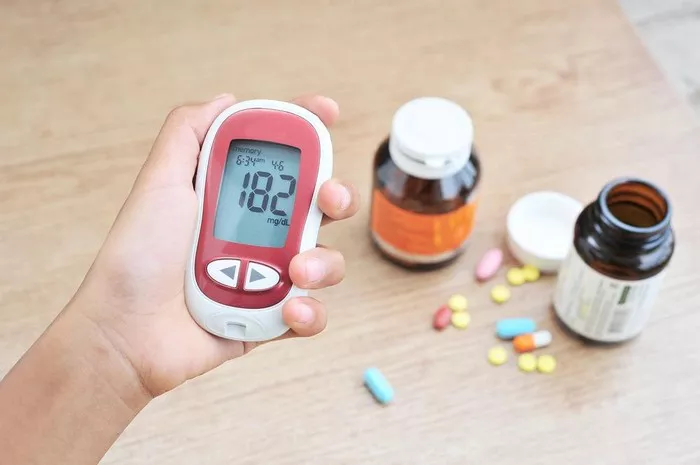Hyperglycemia, defined as elevated blood glucose levels, is a common concern among individuals with diabetes mellitus. It is well-established that hyperglycemia can have profound effects on various organ systems, including the cardiovascular system. Among the cardiovascular manifestations of hyperglycemia, one notable phenomenon is the increase in heart rate. Understanding the underlying mechanisms linking hyperglycemia to elevated heart rate is crucial for managing cardiovascular health in diabetic patients. In this article, we delve into the intricate physiological pathways that contribute to this association.
The Cardiovascular Impact of Hyperglycemia
Before delving into the specifics of how hyperglycemia influences heart rate, it’s essential to grasp the broader cardiovascular implications of elevated blood glucose levels. Hyperglycemia is a hallmark feature of diabetes mellitus, a chronic metabolic disorder characterized by insulin deficiency or resistance. Diabetes significantly increases the risk of cardiovascular complications such as coronary artery disease, myocardial infarction, stroke, and peripheral vascular disease. The mechanisms underlying these complications are multifactorial, involving oxidative stress, inflammation, endothelial dysfunction, and dyslipidemia, among others. However, the relationship between hyperglycemia and heart rate deserves special attention due to its immediate impact on cardiovascular function.
The Autonomic Nervous System: A Key Player
The autonomic nervous system (ANS) plays a pivotal role in regulating heart rate and maintaining cardiovascular homeostasis. It consists of two main branches: the sympathetic nervous system (SNS) and the parasympathetic nervous system (PNS). Under normal circumstances, these branches exert opposing effects on heart rate, with the SNS stimulating heart rate acceleration (positive chronotropy) and the PNS promoting heart rate deceleration (negative chronotropy).
Sympathetic Activation in Hyperglycemia
In hyperglycemic conditions, sympathetic nervous system activity is often upregulated. This heightened sympathetic tone is partly mediated by the release of catecholamines, such as epinephrine and norepinephrine, from the adrenal glands and sympathetic nerve terminals. Catecholamines exert their effects on the heart by binding to β-adrenergic receptors located on cardiac myocytes. Activation of β-adrenergic receptors leads to a cascade of intracellular events, including increased cyclic adenosine monophosphate (cAMP) production, protein kinase activation, and ultimately, enhanced calcium influx into cardiac cells.
The influx of calcium ions during sympathetic stimulation augments the rate and force of myocardial contraction, resulting in increased cardiac output. Moreover, sympathetic activation directly influences the sinoatrial (SA) node, the heart’s natural pacemaker, by accelerating the rate of spontaneous depolarization. This effect manifests as a rise in heart rate, a phenomenon known as positive chronotropy. Therefore, the heightened sympathetic drive observed in hyperglycemia contributes significantly to the increased heart rate observed in diabetic patients.
Insulin Resistance and Adrenergic Sensitivity
Insulin resistance, a hallmark feature of type 2 diabetes, further exacerbates the hyperglycemia-induced sympathetic activation. Insulin resistance refers to impaired cellular response to insulin, leading to decreased glucose uptake and utilization in insulin-sensitive tissues such as skeletal muscle and adipose tissue. In addition to its metabolic effects, insulin plays a crucial role in modulating sympathetic nervous system activity.
Insulin exerts sympathoinhibitory effects by directly suppressing sympathetic outflow from the central nervous system and enhancing the uptake of catecholamines by target tissues. In conditions of insulin resistance, these sympathoinhibitory effects are blunted, leading to persistent sympathetic activation and heightened adrenergic sensitivity. Consequently, even modest increases in blood glucose levels can trigger exaggerated sympathetic responses, including tachycardia.
Inflammatory Pathways and Cardiac Dysfunction
Hyperglycemia is closely linked to low-grade systemic inflammation, characterized by elevated levels of pro-inflammatory cytokines such as interleukin-6 (IL-6) and tumor necrosis factor-alpha (TNF-α). Chronic inflammation contributes to endothelial dysfunction, atherosclerosis, and adverse cardiac remodeling, thereby predisposing diabetic patients to cardiovascular events.
Inflammatory cytokines can directly influence cardiac function by altering autonomic regulation. IL-6, for instance, has been shown to stimulate sympathetic activity and increase heart rate through central mechanisms involving the hypothalamus and brainstem. Moreover, TNF-α can enhance sympathetic outflow by acting on sympathetic preganglionic neurons in the spinal cord. Thus, the inflammatory milieu associated with hyperglycemia contributes to sympathetic overactivity and subsequent tachycardia.
Endothelial Dysfunction and Nitric Oxide Bioavailability
Endothelial dysfunction, characterized by impaired vasodilation and increased vasoconstriction, is a hallmark feature of diabetes mellitus. One key mediator of endothelial function is nitric oxide (NO), a potent vasodilator synthesized by endothelial cells. NO plays a crucial role in regulating vascular tone, blood pressure, and myocardial contractility.
In hyperglycemic conditions, endothelial dysfunction leads to reduced bioavailability of NO, contributing to impaired vasodilation and increased peripheral vascular resistance. The resultant hemodynamic alterations trigger compensatory mechanisms aimed at maintaining tissue perfusion, including sympathetic activation and tachycardia. Therefore, endothelial dysfunction serves as another link between hyperglycemia and increased heart rate in diabetic individuals.
Conclusion
Hyperglycemia exerts profound effects on cardiovascular function, including an increase in heart rate. This phenomenon is primarily mediated by sympathetic nervous system activation, insulin resistance, inflammatory pathways, endothelial dysfunction, and altered nitric oxide bioavailability. Understanding the intricate interplay between hyperglycemia and cardiac autonomic regulation is essential for optimizing the management of diabetic patients and reducing their risk of cardiovascular complications. Future research aimed at elucidating these mechanisms further may unveil novel therapeutic targets for mitigating the adverse cardiovascular effects of hyperglycemia in diabetes mellitus.
Related topics:
How Hypoglycemia Can Cause Hyperglycemia



























